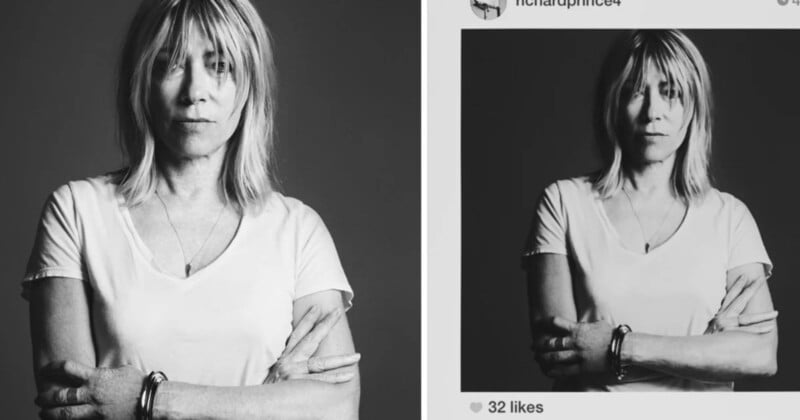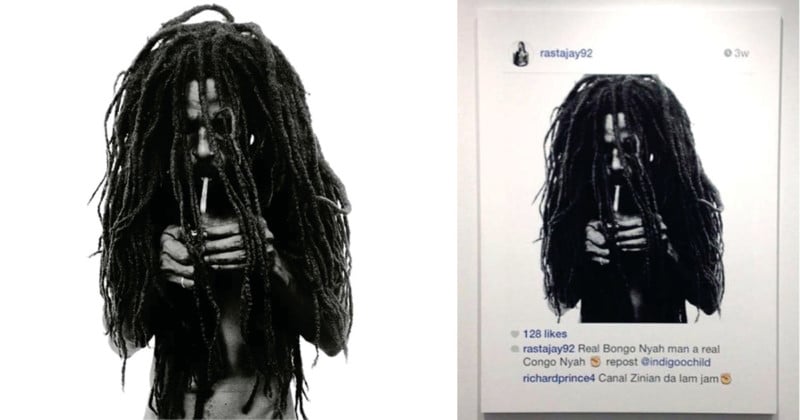Photographers Score Early Victories in Copyright Lawsuits Against Artist Richard Prince

Two professional photographers have scored early victories in a pair of long-running copyright lawsuits against artist Richard Prince for his controversial Instagram-sourced New Portraits series.
The pair of lawsuits against Prince hinge around the artist’s Instagram-sourced New Portraits series, a series of images he appropriated from users on the social media platform.
The series consists of screenshots Prince took from Instagram, enlarged and printed inkjet on canvas, with additional comments.
Prince took some of his screenshots from other individual’s Instagrams, but he also used images that belonged to professional photographers — selling them for up to $100,000 each.
Photographer Donald Graham brought the earliest of the two lawsuits in 2016, accusing Prince of violating the copyright on his 1998 image “Rastafarian Smoking A Joint”.

The second lawsuit was filed by photographer Eric McNatt. It concerns Prince’s use of his portrait of Kim Gordon, co-founder of the band Sonic Youth, which was originally commissioned for Paper magazine in 2014.
Prince exhibited the appropriated print of McNatt’s “Portrait of Kim Gordon” at Blume & Poe Gallery in Tokyo in 2015.
‘Not Transformative’
Courthouse News reports that on May 12, a Manhattan judge refused to toss out Graham’s and McNatt’s lawsuits against Prince.
He ruled that the two photographers’ lawsuits can proceed to trial because Prince did not provide enough initial evidence to prove that his New Portraits series sufficiently transformed two of the photographs he appropriated. Prince had moved to dismiss the cases with a summary judgment.
“Ultimately, this Court concludes that Prince’s alterations have merely ‘modif[ied] the original[s] without being transformative’,” U.S. District Judge Sidney Stein writes in his ruling.
“Defendants’ attempt to cast the images as satire or parody fails, and Prince’s stated purpose in creating these portraits has been both inconsistent and has only limited relevance in light of the similarities between the original and the secondary works.
“Prince did not use plaintiffs’ photographs as raw material to create a collage or nor did he attempt to obscure the images. A reasonable observer would likely identify Prince’s alterations as (1) adding the Instagram frame and (2) showcasing his own comments. These modifications certainly do not begin to approach the alterations found to be transformative as a matter of law in [the] Cariou and Blanch [cases].”
In his ruling, Judge Stein referenced a previous intellectual property lawsuit brought against Prince by photographer Patrick Cariou in 2007.
Cariou sued Prince over 41 photographs from the book Yes, Rasta that Prince had appropriated, modified, and then displayed at a gallery exhibition that nabbed him and the gallery some $10 million. In 2013, New York’s Second Circuit ruled in Prince’s favor, qualifying his use of Cariou’s pictures as “transformative use”.
However, Judge Stein asserted that Prince had failed to sufficiently transform Graham’s and McNatt’s photographs to match that precedent. The ruling means the two photographers’ lawsuits against Prince will continue.
Image credits: Photos via court documents.